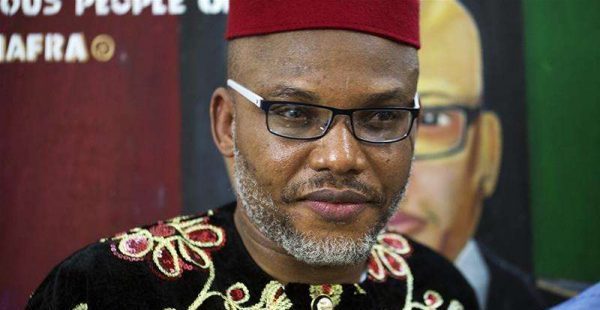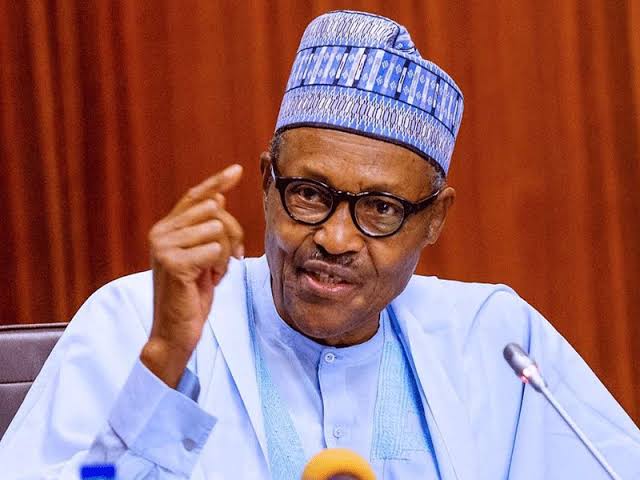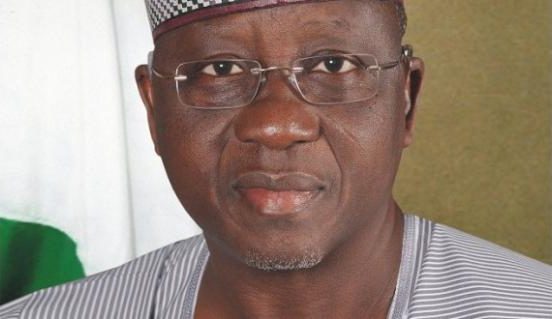Biafra was on the front burner of discussions in Nigeria for a few years when Nnamdi Kanu, the self-acclaimed leader of the proscribed Indigenous People of Biafra (IPOB), re-awakened the elusive Biafran dream with inflammatory statements.
According to Kanu, Igbos would be better off seceding from Nigeria. His style of agitation and presentation of grievances became popular with some people of Eastern extraction who felt they were being marginalized in Nigeria.
However, something that started like a child’s play, metamorphosed into something unimaginable. Social commentators believed Kanu took his campaign too far. He called President Muhammadu Buhari unprintable names and threatened to disrupt the peaceful coexistence of Nigeria if the actualization of Biafra was not achieved.
In one of his interviews, he reportedly said. “I am in Biafra land and anyone who tries to arrest me will die.” A lot of people including some of the people he claimed to be representing viewed such statements as inflammatory and provocative.
It was such provocative statements that forced the Nigerian authorities to begin to see him as a threat to the security of the country. Consequently, the self-styled leader of IPOB was arrested in December 2015 as the security agencies believed his provocative statements were capable of plunging Nigeria into another civil war.
In his absence, talks of secession mellowed down a bit. While he was in detention, the Economic Community of West African States (ECOWAS) court ordered for the immediate release of Kanu, saying his detention was illegal. Several other groups joined in the call for his release. He was denied bail.
However, Kanu was granted bail in April 2017. The bail conditions were that Kanu provided sureties of “highly placed persons of Igbo extraction such as a Senator”, as well as “a highly respected person who resides and owns landed property in Abuja.”
These sureties were equally meant to deposit N100million each. According to Justice Binta Nyako “I must stress it here that the defendant must not attend any rally. He must not be in a crowd exceeding 10 persons.” These were some of the bails conditions. But at the end of the long process, reprieve came the way of the young activist; he was granted bail.
It was not long after Kanu was released that he began making inflammatory statements again. He violated the bail conditions by making statements and moving with more than 10 persons. The situation took a turn for the worse when Kanu and other IPOB members threatened that Anambra elections would not hold. They also threatened the Hausa community in the Eastern states.
In no time, Northern youth groups responded in kind. At a meeting called ‘Kaduna Declaration,’ on June 6, 2017, Arewa Citizens Action for Change, Arewa Youth Consultative Forum, Arewa Youth Development Foundation, among others, told Igbo people living in the North to relocate before October 1, Nigeria’s Independence anniversary.
This heightened the tension in the country. Many Igbo residents in the northern parts were no longer comfortable. It led to more verbal attacks and counter attacks between people of the South East and the core Northern states. The social media was awash with cries of war by Igbos and their northern counterparts. Hate speeches became the order of the day.
The Nigerian government had to announce that hate speech under the country’s amended Anti-terrorism law was an act of terrorism, which will not be tolerated.
Vice President Yemi Osinbajo who was Acting President then, clearly stated that “Hate speech is a specie of terrorism. We have drawn a line against hate speech, it will not be tolerated, it will be taken as an act of terrorism and all of the consequences will follow it.”
This was not enough as the attacks went from verbal to physical. There was a video that went viral about IPOB members looking for Hausas to kill in the eastern states. There was also a report that a mosque was set ablaze. Several other inciting videos surfaced.
The Federal Government had to wade in by sending the Nigerian army using the code name, “Operation Python Dance” to nip it in the bud.
However, this operation became handy to dislodge those the authorities saw as trouble makers, but not without some consequences as many lives were said to have been lost. During the operation, it was gathered that members of the group pelted the Army. The confrontation that people saw as the last straw was when some of the IPOB members were shown dragging the rifle of a female soldier. The Nigeria Army announced that “IPOB is a terrorist group” and went hard on them. The group was proscribed after it was labeled as a terrorist group.
The use of force was deployed to contain Kanu and his movement. His home in Afara-Ukwu Umuahia in Abia State was reportedly raided by the Nigerian army on September 14. It was also reported that Kanu’s parents were in the house when the Army raided it.
Since then, Kanu has been nowhere to be found. The question on the lips of many Nigerians is: Where is Nnamdi Kanu?
Read Also : 2800 delegates for PDP convention
There have been accusations and counter-accusations regarding Kanu’s whereabouts. On September 18, four days after the incident, the proscribed IPOB issued a statement alleging that the Nigerian military killed Nnamdi Kanu and took his body away. The Chief of Army Staff, Lt General Tukur Buratai denied the accusation.
His denial was not enough to disabuse the minds of his accusers as a team of lawyers representing the embattled IPOB leader had in a suit filed in the Federal High Court Abuja, prayed the court to order Buratai to “produce their client either dead or alive.”
The lawyers who were led by Mr. Ifeanyi Ejiofor, told the court that they “have not seen or heard from their client since September 14 when the Nigerian Army invaded his house on a murderous raid, where life and mortar bullets were fired on unarmed and defenseless populace, leaving 28 persons dead and abducting many.”
In a counter-affidavit, Buratai told the court that Kanu was never in custody of the Nigeria Army. He maintained that “Operation Python Dance did not have any contact whatsoever with Kanu on September 12 or 14, or anytime thereafter as alleged.”
The Chief of Army Staff told the court that the there was no time that the Nigerian Army arrested or took Kanu into custody within the period the military operation lasted. He also denied the allegation that soldiers invaded the IPOB leader’s house in Afara-Ukwu Ibeku, Umuahia, Abia State.
In another twist, Senator Enyinnaya Abaribe, who stood as surety for Kanu, has asked the Federal High Court in Abuja to revoke the undertaken he took on behalf of Kanu.
Abaribe was one of the the three persons that signed Kanu’s bail bond. Abaribe who is representing Abia South Senatorial District prayed the court to discharge him as Kanu’s surety. The federal lawmaker said he had neither seen nor heard from Kanu since September 11.
He told the court that he “has not been seen again or reached on the phone by the Applicant, neither is he reported in any news media as seen by any person, nor made any statement on any issue.”
Therefore, he “lacks capacity to produce a person stated by the 1st Respondent to be a member of a terrorist organisation, or any person whom the 1st Respondent is reported to be interested in his whereabouts including the aftermath of the military operations in Abia state, which commenced about September 11, 2017.
Meanwhile, the Federal Government has filed a counter motion, insisting that Abaribe must produce the IPOB leader.
In the whole of this drama, where’s Kanu? Could he be hiding somewhere? Or do we believe the former Governor of Abia State, Mr. Orji Uzor Kalu, who claimed that Kanu had returned to his base in the United Kingdom? These are some of the questions that beg for answers.











